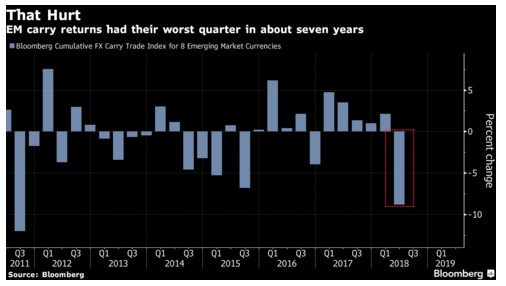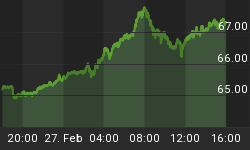Mexican elections have just ushered in the most powerful president in three decades, and he’s pursuing a leftist agenda of change buoyed by a public that is overwhelmingly fed up with insecurity and corruption—and possibly even market-based economics.
But investors shouldn’t be running for the hills: Mexico’s new president—despite his grand designs—is pragmatic.
On Sunday night, Andrés Manuel López Obrador—affectionately known as “Amlo”—won a landslide victory, securing 53 percent of the vote (“fast count” results as of Monday morning), with his party, Morena, set to win a majority in Congress’ lower house and possibly even in the Senate.
He’s the first leftist president in three decades, and his landslide victory will make it easy to push through an agenda.
The minute a leftist wins a major election, market watchers push the panic button, with dire predictions of the end of the free market and major turmoil. Promises to help the poor, and not the rich, are always met with grave economic concerns.
But the peso isn’t that bothered.
While headlines suggest that the peso fell after Amlo’s victory, the reality is that had gained on Sunday and then pared some of those gains Monday. By early Monday it had pulled back 0.6 percent against the dollar.
It’s not exactly and doom-and-gloom scenario. Related: Alibaba Doubles Down On Tech Services
There are always implications, though:
#1 What about NAFTA?
It’s the Trump-led trade war that’s jolting markets right now, and emerging markets alone have seen their worst quarter in about seven years, according to Bloomberg.

(Click to enlarge)
What’s a leftist president going to do about NAFTA? No one really knows, and Trump was unusually cheery on Twitter in responding to Amlo’s landslide victory:

(Click to enlarge)
Some fear that Amlo will make NAFTA negotiations even tougher, but the reality is that NAFTA negotiations were already in trouble and Mexican elections aren’t the nail in this coffin—the Trump administration is.
NAFTA talks have been stalled for a number of reasons, including concerns about what a change in regime in Mexico might mean. But now negotiations are likely to be accelerated. Indeed, the new Mexican president-elect came out after his victory stating he is keen to reach a deal.
In a statement carried by the Associated Press, Obrador said: "We are never going to disrespect the U.S. government, because we want them to respect us. […] We are conscious of the need to maintain good relations with the United States."
So while no one knows what NAFTA’s fate will be, it can’t be worse that it was prior to this stunning leftist victory.
And if it does get worse, it’s likely to be on Trump, who on Sunday—ahead of Amlo’s victory--suggested taxing cars imported from Mexico if the new government created any problems.
#2 Can Amlo Carry Out his Social Mantra?
The Mexican president-elect wants to increase pensions and subsidize gasoline and food prices. We’re not sure how he’s going to fund this ambitious plan if he wants to keep borrowing to a minimum and inflation at bay, as he’s promised. He’s also said tax won’t be increased right out of the starting blocks.
To the casual observer, it would seem that Amlo is banking on corruption—or more to the point, he’s counting on major gains from ending corruption. But will it be enough to fund a new social program?
It is said that corruption costs Mexico some 2 percent of its GDP annually, and that’s probably what’s needed to fund higher pensions and subsidies, but it’s a tricky game that is more easily talked than played. (As will be his promise to subdue drug cartels).
Related: The Leaders In The Quantum Computing Race
There will have to be spending cuts, and fiscal tightening—which is the populist’s nightmare and usually ends in major blowback from a public that was expecting sweeping change.
But at the same time, Amlo is making these promises in a country that’s not really faring too poorly economically. National debt isn’t a huge problem and inflation is under control at the moment, while growth is pretty consistent, according to the Financial Times.
#3 Foreign Investment
Scrutiny is the bane of foreign investment, and while it should be a good thing, investors are necessarily concerned that Amlo equals more problems. Investors are already worried that Amlo will be less accommodating, but these concerns are largely based on a single label--“leftist”—and a broad assumption that this automatically means foreign investment unfriendly.
In his victory speech, Amlo said: “The new project of the nation will try to seek an authentic democracy,” and he promised central bank independence, economic prudence and respect for individual freedoms.
“I want to go down in history as a good president of Mexico,” he said.
It will be unfriendly toward corruption, though. And this means a review of oil contracts. The energy sector will be most concerned because Obrador comes from a key area of Mexico where oil exploitation first started, and he has vowed to review contracts signed by the out-going government with an eye on corruption.
But he is also pragmatic, and investors should be noting one key development: Obrador’s team still contains many faces that are familiar, and many that his voters will note are among those politicians that he ostensibly would target for corruption.
By Charles Benavidez for Safehaven.com
More Top Reads From Safehaven.com:
















